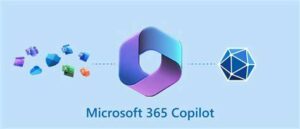The field of chemistry is on the cusp of a new transformation, thanks to the latest advancements announced by Microsoft in their Azure Quantum Elements platform. Two groundbreaking technologies—Generative Chemistry and Accelerated Density Functional Theory (DFT)—promise to significantly accelerate the pace of chemical discovery and innovation.
Generative Chemistry: AI-Driven Breakthroughs
Generative Chemistry leverages the power of artificial intelligence to expedite the process of chemical discovery. By utilizing AI models trained on millions of chemical structures and compounds, this technology can rapidly identify new compounds and predict their properties. Microsoft envisions that Generative Chemistry will be instrumental in discovering cures for diseases faster and addressing critical issues in areas such as food production and energy solutions.
The ability to quickly generate and analyze a vast array of chemical compounds opens up unprecedented possibilities for innovation. Scientists can now explore new frontiers in medicine, environmental science, and materials development at a pace previously thought impossible.
Accelerated DFT: A Quantum Leap in Performance
The second major advancement is Accelerated Density Functional Theory (DFT). DFT is a computational modeling method used to investigate the electronic structure of molecules and condensed matter systems. It provides a high-level view of molecular activity, particularly focusing on electron behavior.
Accelerated DFT integrates AI and quantum computing concepts to vastly enhance the performance of traditional DFT calculations. This results in a staggering 20-fold increase in overall performance. By dramatically improving the efficiency and accuracy of DFT, researchers can gain deeper insights into molecular interactions and dynamics, paving the way for groundbreaking discoveries in various scientific domains.
Why This Matters
Microsoft’s ambitious goal is to compress the next 250 years of chemistry advancements into just 25 years. This accelerated timeline could lead to transformative changes in society, from the rapid development of new medicines to innovative solutions for climate change and food security.
The combination of high-performance computing (HPC), AI, and quantum technologies in these new tools has the potential to drive significant Azure usage. However, it is worth noting that these advanced technologies require specialized teams to fully leverage their capabilities.
The introduction of Generative Chemistry and Accelerated DFT marks a pivotal moment in the field of chemistry. By harnessing the power of AI and quantum computing, Microsoft is empowering scientists to achieve breakthroughs at an unprecedented pace. The societal implications of these advancements are profound, promising to address some of the most pressing challenges of our time.
For more detailed information on these innovative technologies, you can read Microsoft’s official announcement here.



